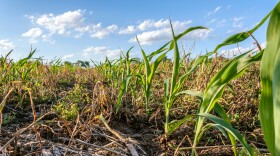This week's move by federal lawmakers to advance another temporary government budget also means the Farm Bill, which recently expired, is extended.
Farmer advocates are calming their panic, but said the agricultural sector needs focus and more support. The Farm Bill sets spending levels for agricultural and food assistance programs every five years. The 2018 version expired earlier this fall, and lawmakers are now finalizing a yearlong extension.
Mike Lavender, policy director for the National Sustainable Agriculture Coalition, said they should not wait the full year to adopt the new bill, noting the 2018 version came with limitations.
"The 2018 Farm Bill, for example, decreased investment in some of the conservation practices and conservation programs that we know are key to building resilience but also incredibly popular among farmers," Lavender pointed out.
To deal with rising threats from climate change, his group said Congress should include new investments in the new version by early 2024. Last year's Inflation Reduction Act bolstered farm conservation funding but Republicans have been trying to strip those provisions.
Meanwhile, Lavender wants more priority given to strengthening regional offices helping farmers and ranchers sign up for sustainability incentives and other aid.
"Are we making sure that USDA programs and farm bill programs are accessible to all farmers and that we have a level playing field?" Lavender asked. "Because we don't have that right now."
Lavender worries about historically disadvantaged farmers, and younger producers who do not come from a farming family, being able to access support like crop insurance. He acknowledged the need for more staffing and enhanced training at resource centers.





